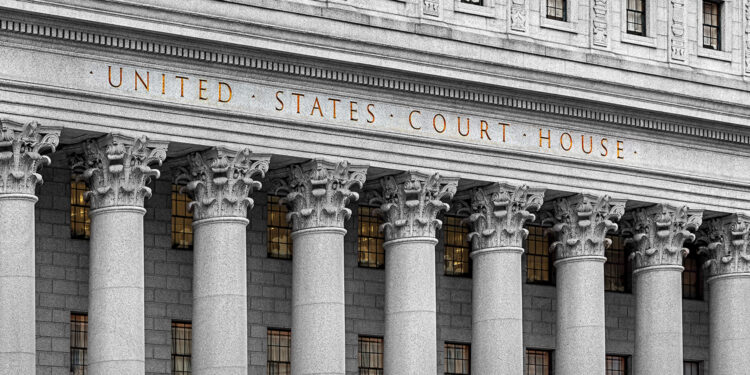TVLSE, Okla. – Tulsa City Mayor G.T. Bynum made a Facebook post on June 30, which provided his support of a decision from the higher court in response to 10th Circuit Court of Appeals’ ruling of Hooper v. City of Tulsa on June 28.
The municipality had charged Choctaw citizen Justin Hooper with a speeding violation, costing him $150 in 2018. After the U.S. Supreme Court’s McGirt Decision was ruled on in 2020, Hooper filed for postconviction relief. It was denied by the City of Tulsa Municipal Court using the Curtis Act as a basis of denial.
Hooper filed a motion to appeal his denial to the 10th Circuit Court. The 10th Circuit Judge Carolyn McHugh reversed the ruling of denial.
Now, Bynum claims that further verification should come from the United States Supreme Court.
Muscogee (Creek) Nation Press Secretary Jason Salsman told Mvskoke Media the Nation is disappointed about the pushback in the decision. “because we are equitable and capable partners,” Salsman said.
“We care about our relationship with the City of Tulsa,” Salsman continued. “We have worked hard to strengthen that relationship, but it must be fostered through mutual respect.”
Bynum’s Response
In Bynum’s response to the 10th Circuit Court’s decision, he expressed his frustration with the law. Although the city is pursuing further legal action, Bynum clarified that he wants the U.S. Supreme Court to take a firm stance on what Tulsa’s place is in enforcing laws on tribal land.
Bynum released the following on his official Facebook page:
“Imagine something you assumed to be true for over 100 years turned out not to be the case. That’s what Tulsa has been dealing with since the U.S. Supreme Court informed us in the summer of 2020 that we reside in the Muscogee and Cherokee reservations.
This is a good thing. Tulsa would not exist if it weren’t for the Muscogee Creek Nation, and our culture as a city is defined by the three tribal nations that intersect in Downtown Tulsa. I am proud that we reside in the Cherokee, Creek, and Osage Nations.
But it is also a big change. Tulsa went from not knowing we were on a reservation at all to being the largest American city within a reservation. The McGirt decision brought into question many of the foundations of our systems of government. Criminal justice, land use regulations, taxation, and more – how are tribal and non-tribal citizens treated within these frameworks that we have historically relied upon to create stability within our community? Do one set of laws apply to you and a different set of laws apply to your neighbor?
When the Supreme Court issued their ruling, there was an implication that Congress would act to clean all of this up. Three years have gone by and Congress has failed to do anything. This has left the tribal nations, the State of Oklahoma, and the City of Tulsa to pursue clarity around these questions through the other mediator at our disposal: the courts.
Over the last few years, the City of Tulsa has been seeking clarity on a seemingly basic issue: do city ordinances apply to everyone in Tulsa? The City’s attorneys interpret federal law to say they do, and the federal district court agreed with them. Attorneys for a tribal citizen disagree, and the federal court of appeals agreed with them. This leaves us one last venue to clear it up: the United States Supreme Court.
Today I have authorized our attorneys to request that the United States Supreme Court hear this case and give all parties clarity so we can move forward. As we have with their other rulings, we will honor whatever the courts decide. But we need to know what federal law allows.
At the same time, I think it is important that we move beyond this legal back and forth. It is bad for everyone involved for us to continue relying on litigation to clear up these issues. All of this will be cleared up over time, but the sooner it is the sooner we can all be working together. And I am confident that when the tribal nations, Oklahoma, and Tulsa are all working together no one can stop us.
To that end, we are already in contact with our overlapping tribal governments to establish operating practices that will guide the work of our governments moving forward. I do not subscribe to the opinions elevated by some that tribal nations want to make Tulsa a more dangerous place. Quite the opposite. I have the highest respect for the governments of the Muscogee Creek, Cherokee, and Osage Nations. I am hopeful we can find common ground that best serves all Tulsans.
I respect the sovereignty of our tribal nations, as I respect the sovereignty of the United States of America and the State of Oklahoma. I want us to do the right thing here in Tulsa. That requires legal clarity and a desire to work together in the best interests of the people we serve. I am committed to both.”
Oklahoma Governor Kevin Stitt also voiced his displeasure with the 10th Circuit’s decision in a video uploaded to his official Youtube Channel.
In the video, Governor Stitt states:
“There are some who believe that the rules that you follow should be based on your race or your heritage. Some believe your heritage should also determine the speed you drive on Oklahoma roads. If left unresolved by our nation’s highest court, this will have ripple effects across our state.”
Mvskoke Media will continue to monitor the appeal and provide updates on the case.





